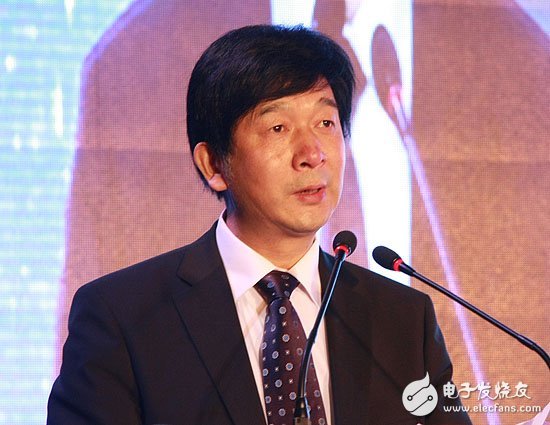China hints that its ambition to become a global semiconductor powerhouse should focus on reality, because R&D spending cannot surpass semiconductor giants such as Intel in the short term, but China is still a force that cannot be ignored in emerging areas such as the Internet of Things.
Ding Wenwu, president of the National Integrated Circuit Industry Investment Fund Co., Ltd., said at the China International Semiconductor Summit held in Shanghai recently that China’s “curve overtaking†strategy is unrealistic. The $20 billion government support fund established in 2014 aims to help the Chinese chip industry stand out. Ding Wenwu called "curve overtaking" to achieve surpassing when competitors are the weakest.
At present, China is working hard to reduce its dependence on about $200 billion in semiconductor imports each year because China fears that excessive reliance will undermine national security and the development of the domestic semiconductor industry. China plans to spend about $150 billion in 10 years to take the lead in chip design and manufacturing, and US corporate executives and government officials warn that this ambitious plan could hurt US interests. The National IC Industry Investment Fund led by Ding Wenwu played a key role in guiding overall investment and strategy.
"In view of the current situation, it is very impractical to achieve corner crossing," Ding Wenwu said. "It’s only possible if everyone is on the same starting line," he said. Funding can't solve the problem. You know, Intel, Samsung Electronics and TSMC's annual R&D spending are in the billions or even tens of billions.

Ding Wenwu asked: "How can we achieve beyond in the situation of so much backwardness? Not to mention that the leader is also trying to maintain its leading position." With the rise of the Internet of Vehicles, China's Ministry of Industry and Information Technology focuses on intelligent hardware, Potential markets such as smart sensors. "We support innovation in smart hardware, smart sensing, intelligent networked vehicles, and smart medical fields," said Shi Shijing, director of the Electronic Department of the Ministry of Industry and Information Technology. “The integrated circuit industry has been exploring the direction of development as the industry's foundation and the most important area, and will not miss new growth opportunities.â€
As one of the subsidiaries of Tsinghua University and one of the representatives of China's university industry, Ziguang has become one of the largest semiconductor manufacturers in China relying on high-performance processors and 3D-NAND memory chip components.
In March of this year, Tsinghua Unisplendour received 100 billion yuan of financing from the National Development Bank. In addition, Huaxin Investment Management Co., Ltd., which was established in 2014, has invested no more than RMB 50 billion, and the funds will be used to promote the development of the domestic semiconductor industry.
This move caused concern in the United States, so the White House issued a report warning that China's promotion of semiconductor technology may cause harm to US chip manufacturers and put US national security at risk.
Wei Shaojun, director of the Institute of Microelectronics at Tsinghua University, said: "One of China's biggest concerns is that we don't want to see our other industries under control. "We rely heavily on semiconductor imports, but if they suddenly stop providing us with chips? â€
“On the other hand, the CEO from overseas giants asked me: You bought a lot of chips from us. What should we do if you stop buying?â€
Ziguang Group and other Tsinghua subsidiary companies have won several acquisitions over the years, including RDA Microelectronics Inc. and Spreadtrum CommunicaTIons Inc. to strengthen their design capabilities and signed cooperation agreements with global companies such as Western Digital Corp. . However, this amnesty merger was intercepted, and Tsinghua was forced to withdraw its plan to invest in Western Digital Corp, fearing that it might be censored by the US government and that a plan to acquire Taiwanese companies was also lost.
Now, China is worried that a sharp increase in overseas mergers and acquisitions will result in capital outflows. This further threatens to stifle a country’s access to technological credibility quickly. “The overseas acquisition environment is now very complicated,†Ding Wenwu did not elaborate further on how complicated it is.
Provide you with the supply of pulse oximeter finger. to help you safely get back to your daily routine.
With more than 15+ yrs rich MFG experience, you can definitely trust in and cooperate with.
Our strict quality control protocol thoroughly vets every aspect of production, storage, and shipments all the way way to our end customers.
Our products include pulse Oximeter Finger, Forehead Thermometer, Automatic foam soap dispenser, etc.
Pulse Oximeter Manufacturers, oxygen saturation, oximetry
TOPNOTCH INTERNATIONAL GROUP LIMITED , https://www.mic11.com